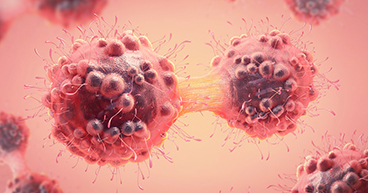
Soursop fruit, with its sweet flesh and distinctive flavor, is grown commercially to make juice, candy, sorbet and ice cream.
It's also is purported to have medicinal qualities, with claims across the Internet that soursop tea or extract can slow the spread of cancer or make traditional cancer treatments work better.
Experts warn against using soursop to treat cancer. While limited, lab-based research suggests this fruit may help fight cancer, it hasn't been studied in humans. As a result, there's no evidence of its safety or efficacy.
Soursop has been associated with many unsubstantiated claims, says Daniel Kellman, ND, FABNO, Naturopathic Oncology Provider at City of Hope Atlanta.
What is soursop?
The long, prickly soursop fruit comes from the graviola tree, an evergreen native to Mexico, the Caribbean, and Central and South America. Practitioners of herbal medicine use soursop fruit and graviola tree leaves to treat stomach ailments, fever, parasitic infections, hypertension and rheumatism. It's used as a sedative, as well.
Soursop may also be referred to by other terms, such as:
- Guanabana
- Custard apple
- Brazilian paw paw
- Graviola
- Guyabano
Some people eat the fruit whole, while others make soursop tea, drink the juice or use it as an ingredient in jellies or ice cream.
Soursop and cancer: What the research says
Claims of the fruit's anti-cancer properties have attracted the most attention. A study published in the Journal of Medicinal Chemistry in 1997 suggests that soursop compounds tested on breast cancer cells in culture were more effective than chemotherapy in destroying the cells.
A 2016 study published in Scientific Reports indicated that soursop showed anticancer activity on prostate cancer cells, but the study was on mice, not humans.
Without clinical trials, there's no data to support the claim that soursop could be beneficial to cancer patients.
Most studied are soursop's fatty acid derivatives called annonaceous aceteogenins. The predominant acetogenin is annonacin, which, because of its toxicity, likely would not be studied in clinical trials.
When used orally, soursop is classified as likely unsafe, said Kellman, citing two studies. Eating the fruit could lead to movement disorders similar to Parkinson's disease, according to a case-control study in the French West Indies. In addition, a study suggests tea made for the leaves and stems of graviola is associated with neurotoxicity, a process that interrupts and changes the nervous system's normal activity.
Herbal supplements and cancer
In general, some cancer patients use herbal supplements to relieve their symptoms and to treat their cancer. Herbal supplements, though, are not a substitute for mainstream cancer care. What's more, using herbal supplements while undergoing chemotherapy could reduce the efficacy of chemotherapeutic agents due to possible herb-drug interactions.



